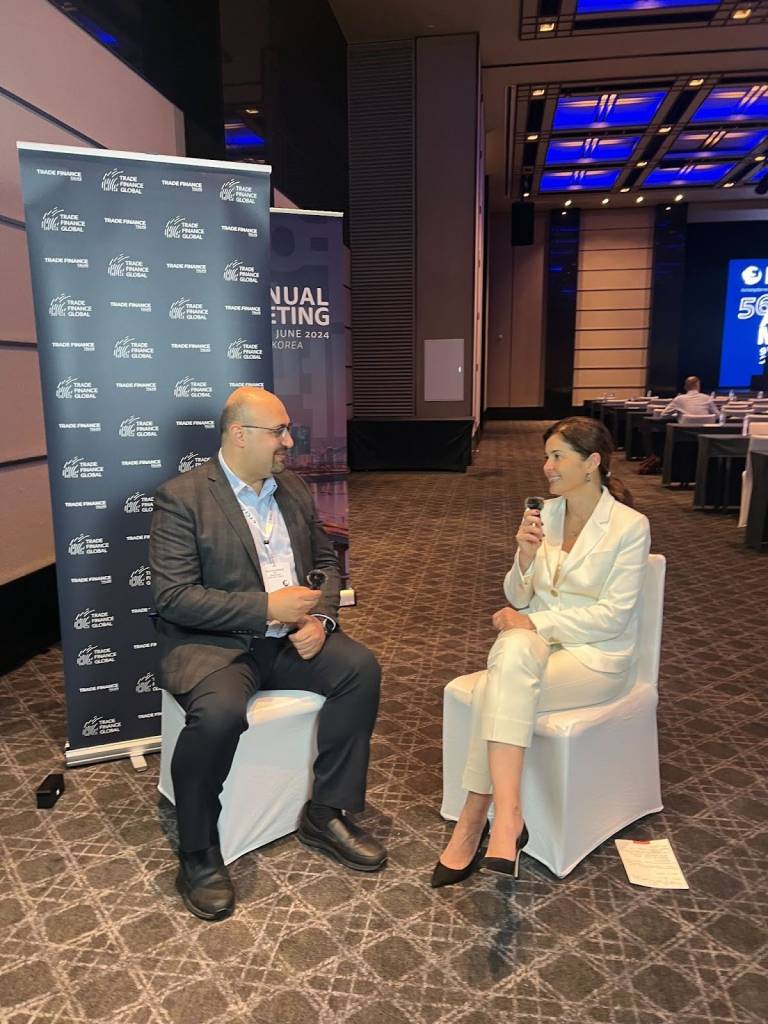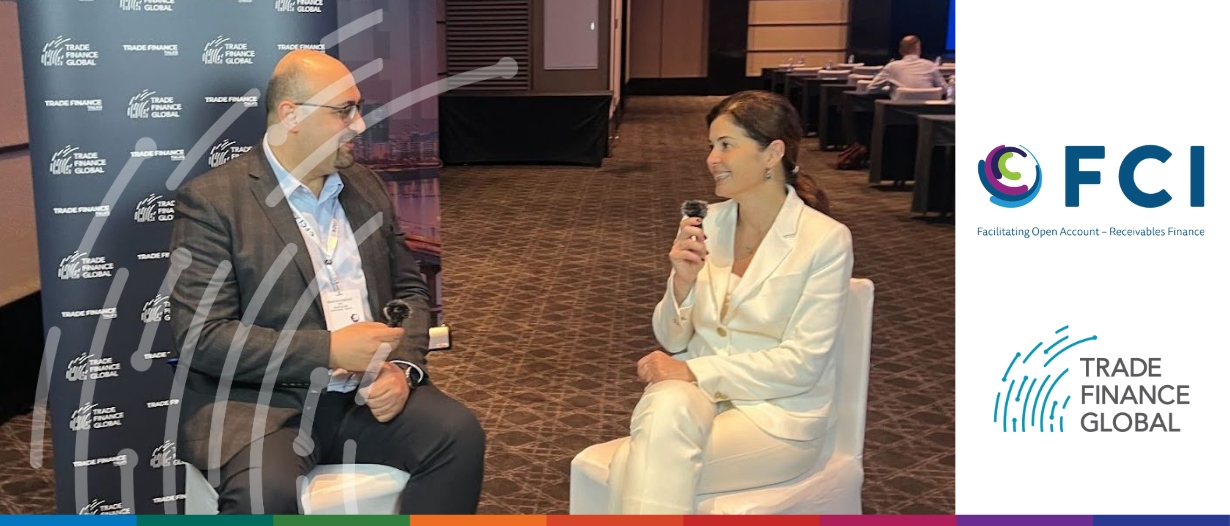Estimated reading time: 5 minutes
Listen to this podcast on Spotify, Apple Podcasts, Podbean, Podtail, ListenNotes, TuneIn
Islamic finance solutions for factoring is an area of growing importance for the wider trade finance community, including FCI.
In fact, FCI signed an MoU with the International Islamic Trade Finance Corporation (ITFC) to promote Shariah-compliant Islamic International Factoring and expand cooperation with Islamic Banks.
However, it takes a collaborative effort to educate the industry about Islamic factoring and financing before further growth can occur.
That is why at the 56th Annual FCI Meeting in Seoul, Betül Kurtulus, Regional Director, FCI, was joined by Basel Al-Hussien, Senior Manager – Advisory, ITFC, to discuss the growth of Islamic international factoring and ITFC’s development of Islamic factoring solutions in collaboration with FCI.
Promoting trade across regions
The International Islamic Trade Finance Corporation (ITFC), a key player within the Islamic Development Bank Group, is committed to enhancing trade among member countries of the Organization of Islamic Cooperation (OIC). As a multilateral developmental financial institution, ITFC plays a pivotal role in both intra-OIC and external trade, with a diverse shareholder base comprising governments of OIC member states.

Al-Hussien said, “Our main mandate is to promote and finance trade within the OIC and beyond.” The institution manages a substantial trade finance portfolio, valued at approximately $7 billion annually, which primarily covers funded financing. ITFC also offers a range of unfunded trade services, including letter of credit issuance and confirmation, alongside supporting documentary collection exchange among counterparties.
Furthermore, ITFC is actively involved in developing integrated solutions and flagship programs that aim to provide developmental support and advisory services. “These initiatives are designed to assist member countries in developing, advancing, and growing their trade capacities,” said Al-Hussien.
This comprehensive support framework highlights ITFC’s commitment to fostering economic growth and development across the OIC member states.
Launch and development of the Islamic International Factoring Product
The launch and development of the Islamic Solutions for International Factoring has been a learning experience. ITFC began to develop its own products to provide additional services to member countries, the first of which was the supplier financing product that was successfully developed and made available for implementation since 2016 serving as an Islamic solution to the factoring industry.
After engaging with FCI, the two organisations have worked together to promote such products to the factoring industry.
This work is done as part of a task force established by FCI and supported by its Legal Committee in order to develop the supplementary general rules for international factoring that address business needs and compliance issues with Islamic finance principles when conducting factoring business through Islamic solutions and services.
Nevertheless, Al-Hussien believes that more work is needed to develop knowledge and awareness about the product structuring for FCI members.
Since 2018, the Supplemental Agreement to the General Rules for International Factoring (GRIF) has been a key focal point for ITFC, which has since become a member of FCI with the main purpose of conducting this form of business for its member countries, as well as promoting Islamic finance as part of its mandate.
Increasing awareness of Islamic solutions for the factoring market
Having launched the Supplemental Agreement in 2018, the first turnover has been realised by one of the Islamic members of FCI, as well as one of the conventional members, in 2022. This is evidence of positive progress over a short period of time. However, to continue this positive trajectory and maximise the enormous potential of the Islamic banking industry, increasing educational awareness of Islamic solutions for the factoring market is needed.
Education is vital for the next step, as the industry is growing at a rapid pace. Al-Hussein said, “The Islamic finance industry is expected to grow to about $6 trillion by 2026, and there is a great opportunity to grow this capacity.”
Organisations like FCI and ITFC hope that this growth is a sign of the times to come, since the products are already available for the market.
Several financial institutions already make use of this, as well as one FCI member and several non-members implementing the solution at smaller scales. This, however, miss the large growth opportunity presented by the FCI network.
Al-Hussien said, “What we need now is to educate FCI members, as well as non-members, about the benefits of such solutions, and build awareness about the differences between conventional factoring and Islamic solutions for conducting factoring business under Islamic Sharia principles.”
On this topic, ITFC is currently working with FCI on developing an e-learning course on Islamic solutions for supply chain finance, which it aims to launch by the end of 2024.
Leveraging the FCI network to facilitate trade transactions
Under its Islamic international factoring product, FCI structures the roles and responsibilities of the export factor and import factor, and the exporter and importer.
Kurtulus said, “In Islamic financing, all the financial institutions are really on letters of credit or on an open account basis – they are financing real trade.” Islamic members and non-members, as well as Islamic financial institutions often pose questions regarding financing in this context.
The FCI network therefore provides a great platform to facilitate such trade transactions. Al-Hussien said, “Factoring is based on a real trade transaction that was generated between an exporter and importer. The supply chain finance, which is also part of the factoring industry, has been built on this trade transaction.”
It had repeatedly been mentioned at the conference that it is not just about financing the existing receivables, but also to include other aspects of the trade transaction, such as purchase orders.
Al-Hussien said, “This is a great door to step through to offer Islamic financial solutions to finance the supply chain and factoring. [Of] the structures available currently, there are three or four structures that can be implemented. This has been designed in an innovative way to address the exact needs, to deliver the same benefits, even if not more benefits than conventional factoring…[therefore] we can offer, based on each financial institution’s specific needs and desires, an innovative solution that can serve this purpose. And the beauty of it is that it is synchronised with the current network requirements. It can deliver the same outcomes desired as well as working flawlessly with non-Islamic members.”
“The FCI two-factor system and FCI network is the correct platform to start conducting such business.”





























